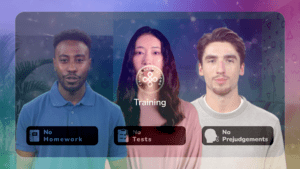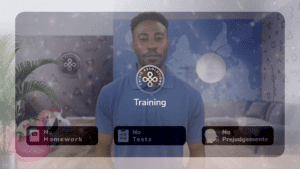Episode 1 Narrative
The beginning of Crisis Resolutions’ training series focuses on the genesis and growth of “Good Ways”.
The Good Ways Standards provide a model to measure, comprehend, and manage human capacity and capabilities, with 8 Standard Good Ways and 205 Dependent Good Ways.
In episode 1 of this training, we cover the topic of “Good Continence”. This concept applies to personal, professional, family, and social practices. We provide examples of each. In conclusion, we emphasize the importance of understanding crisis and consciousness.
Good Ways of Continence Genesis
Personal Good Ways related to continence are methods that express the 1st level of flexibility, sensibility, sustainability, accessibility, and capability.
Continence as a personal practice involves flexibility in selfhood, childhood, parenthood, siblinghood, and spousehood. It involves sensitivity to capacity, charge, current, resistance, and power, and sustaining infinity, intensity, density, resistance, and conductivity. Continence also involves accessibility to probability, correlation, curvature, clustering, and causality. Finally, it involves capability through potential action, kinetic action, radiant action, thermal action, and chemical action.
Examples of personal good ways related to continence include:
- Selfhood Flexibility: Being open to new experiences and perspectives, and being willing to change one’s beliefs or opinions.
- Siblinghood Sensibility: Being aware of the needs and feelings of one’s siblings, and showing empathy and support.
- Parenthood Sustainability: Making responsible and sustainable choices for one’s children, such as choosing environmentally-friendly products and supporting ethical companies.
- Spousehood Accessibility: Communicating openly and honestly with one’s partner, and being receptive to their needs and desires.
- Childhood Capability: Developing the ability to delay gratification and control impulses, which can lead to greater success and happiness later in life.
Good Ways of Continence Growth refer to the practices and actions we can take to develop the ability to control our impulses and desires.
Good Times of Continence Practice
By practicing continence, we can learn to control our impulses and make more deliberate and thoughtful decisions.
One way to practice continence in our personal lives is by setting goals and working to achieve them. By focusing on our long-term objectives, we can resist the temptation to indulge in short-term pleasures that might distract us from our goals.
Example: Setting a goal to read one book per week and resisting the temptation to watch TV instead.
In a professional setting, practicing continence might mean resisting the urge to take shortcuts or make hasty decisions. Instead, we can take the time to carefully consider our options and make choices that are in line with our goals.
Example: Taking the time to conduct thorough research before making a business decision.
In a family setting, practicing continence might mean setting boundaries and being mindful of our interactions with others. By exercising self-control and showing restraint, we can cultivate stronger and more supportive relationships with our loved ones.
Example: Refraining from speaking harshly to a family member during a disagreement.
In a social setting, practicing continence might mean resisting peer pressure and making choices that align with our values and beliefs. By staying true to ourselves and exercising restraint, we can build stronger and more meaningful connections with others.
Example: Declining an invitation to engage in behavior that conflicts with our personal values.
Good Times can result from the investigation of Continence, as we learn to exercise self-restraint and discipline in our actions and decisions. This can lead to a sense of accomplishment and increased self-esteem, as we set and achieve goals for ourselves. For example, practicing self-control in our diet and exercise habits can lead to improved physical health and a sense of pride in our ability to make positive changes in our lives. In a professional setting, exercising restraint in our interactions with colleagues and clients can lead to improved relationships and increased success in our work. In a family setting, practicing Continence through effective communication and conflict resolution can lead to a stronger and more harmonious family dynamic, resulting in more good times and happy memories. Similarly, in a social setting, exercising self-control and discipline in our behavior can lead to stronger relationships and a more positive impact on those around us, ultimately resulting in more fulfilling and enjoyable social experiences.
Good Life of Continence Mimesis
The mimesis of continence can result in a good life characterized by self-control, discipline, and moderation.
Good Life as a result of the Inheritance of Continence signifies the importance of understanding crisis and its effect on our lives. Crisis originally meant division and decision in ancient Greece, while in later centuries it was influenced by negative-reinforcement cultures and ended up reflecting guilt and endless punishment. In general, crisis denotes a momentum of great importance and is nothing else than a different word for the so-called intellect (thinking, data, cognition, conscience).
The fruits of crisis are always both pleasurable and painful at the same time, as we all inherit great powers in a very fragile state of living. It is up to us to focus on it as a moment of disaster and fear, or a moment to show our power for good judgment (humane sensibility, balance, middle way, manners, good ways).
A crisis is considered good when it takes the form of true self-judgment (altruism, empathy, non-biased sensible thinking). A bad crisis, on the other hand, turns to be a sense of depression through an addiction to self-regenerative judgment (the intellect bias, and our capability to think endlessly for the sake of thinking and therefore judging). This leads to a constant sense of lack of safety, which is what we call fear and sorrow.
Thinking is one of our greatest innovations, but also a trap of attentiveness which burdens us continuously and everyday for our whole lives. This capability of crisis to become a memory, which is a lasting form of crisis – magnetizing our attention according to our present conditions – is a gifted skill, but not the gift’s giver. So thinking and the intellect cannot define the source of crisis, which is the self.
In simple words, all forms of recorded knowledge, either traditional, esoteric, epistemic or whatever, are a very precious visualization of human complexity and identity – but at the same time have no power to define humans. As this is also what we have witnessed through the loss of common memory of generations of humans who came before our recorded history.
When sentience though gets liberated from the intellect – it becomes timeless (loses sense of time/troubles/pain/ego/self) – and signifies a state of receptive and proactive intelligence (revelation of what is) which is general and common to all life.
As long as we think (self-reflect), we will always be in crisis. Whenever our intellect silences (limits of mind) – we find that it is only our intelligent sensibility that remains (substratum, intuitive logic, true self, being, consciousness, spirituality, mindfulness, mortality, morality, ethics).
The Intellect Loop Bias is an unhealthy behavior that can lead to passive depression and aggression, ultimately resulting in a lack of mental stability and well-being. It is a common mental issue that affects the majority of the population and can manifest in a variety of ways, such as stress, anxiety, and feelings of hopelessness. With the right support and understanding, we can take control of our mental health and move beyond the intellect Loop Bias.




